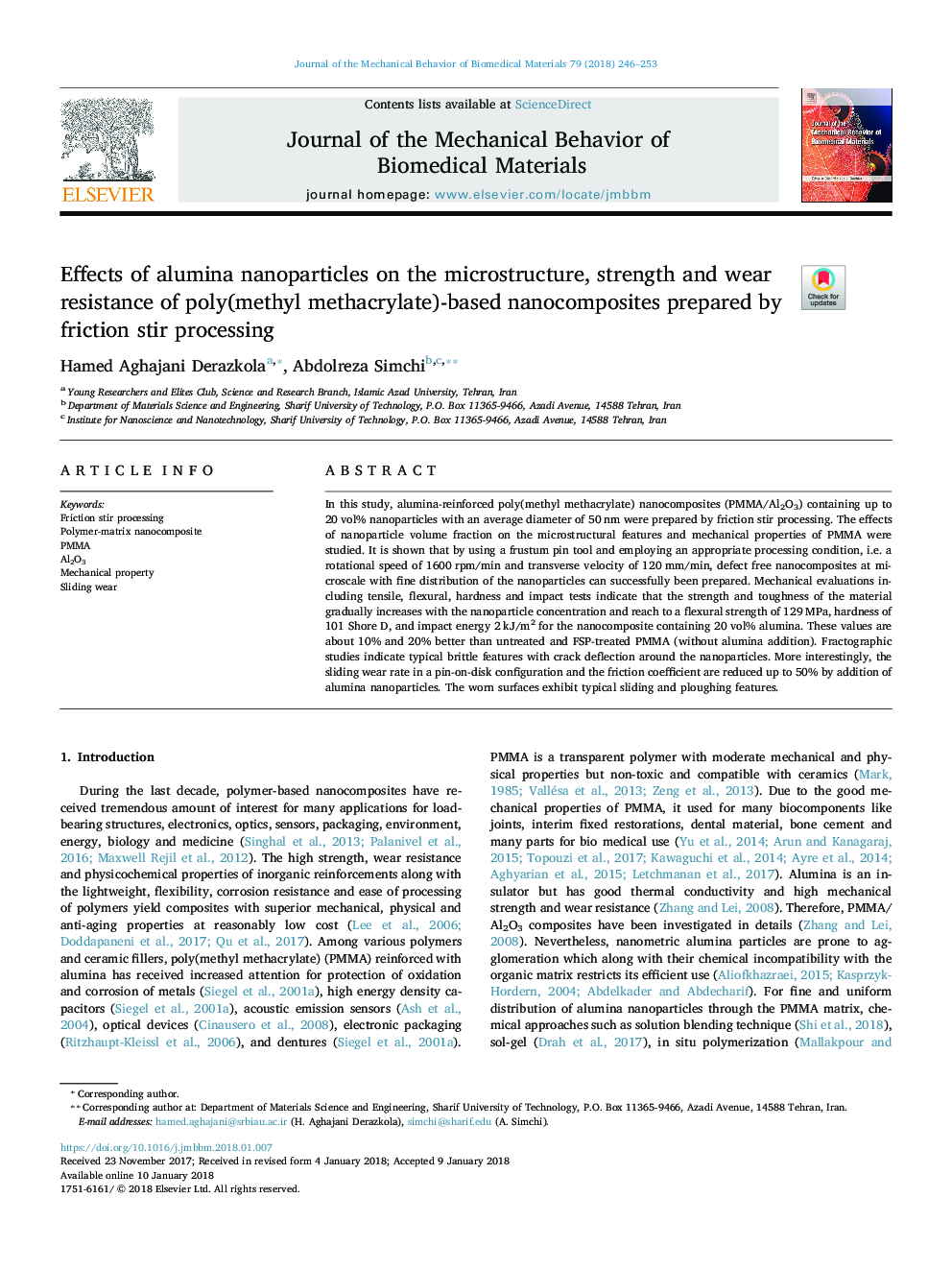| Article ID | Journal | Published Year | Pages | File Type |
|---|---|---|---|---|
| 7207254 | Journal of the Mechanical Behavior of Biomedical Materials | 2018 | 8 Pages |
Abstract
In this study, alumina-reinforced poly(methyl methacrylate) nanocomposites (PMMA/Al2O3) containing up to 20Â vol% nanoparticles with an average diameter of 50Â nm were prepared by friction stir processing. The effects of nanoparticle volume fraction on the microstructural features and mechanical properties of PMMA were studied. It is shown that by using a frustum pin tool and employing an appropriate processing condition, i.e. a rotational speed of 1600Â rpm/min and transverse velocity of 120Â mm/min, defect free nanocomposites at microscale with fine distribution of the nanoparticles can successfully been prepared. Mechanical evaluations including tensile, flexural, hardness and impact tests indicate that the strength and toughness of the material gradually increases with the nanoparticle concentration and reach to a flexural strength of 129Â MPa, hardness of 101 Shore D, and impact energy 2Â kJ/m2 for the nanocomposite containing 20Â vol% alumina. These values are about 10% and 20% better than untreated and FSP-treated PMMA (without alumina addition). Fractographic studies indicate typical brittle features with crack deflection around the nanoparticles. More interestingly, the sliding wear rate in a pin-on-disk configuration and the friction coefficient are reduced up to 50% by addition of alumina nanoparticles. The worn surfaces exhibit typical sliding and ploughing features.
Related Topics
Physical Sciences and Engineering
Engineering
Biomedical Engineering
Authors
Hamed Aghajani Derazkola, Abdolreza Simchi,
